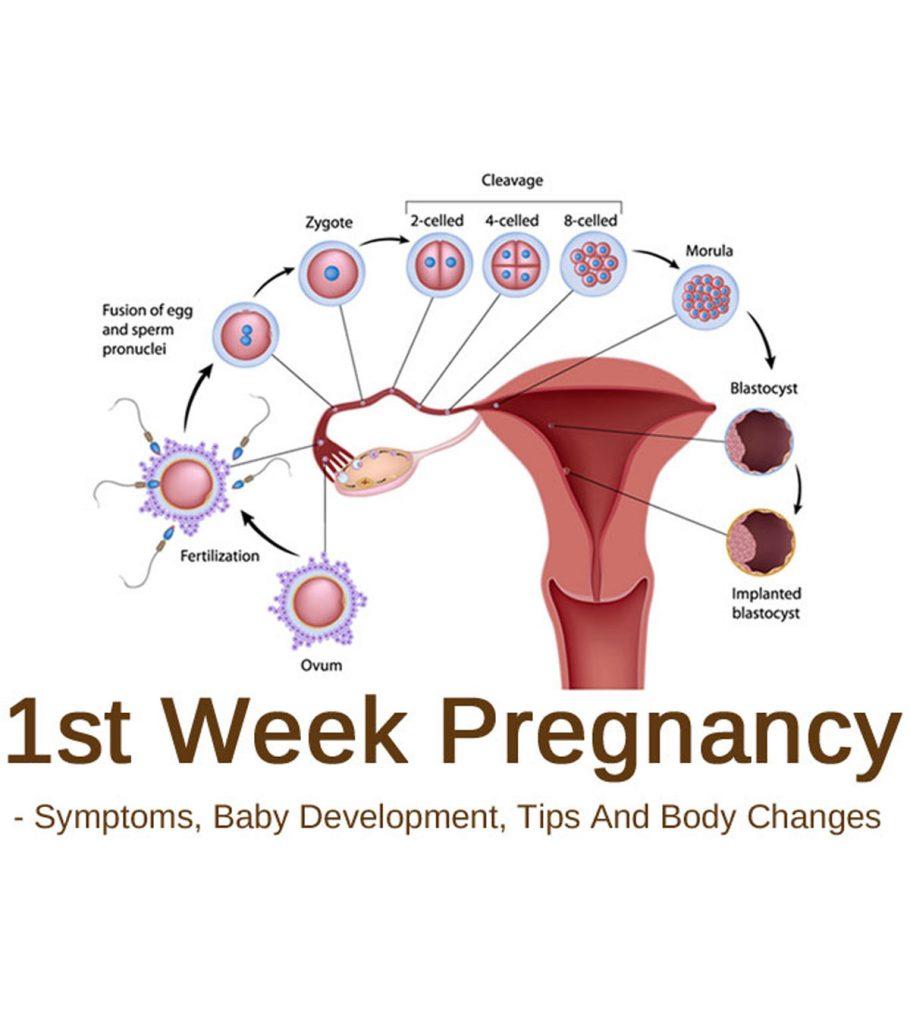
One Week of Pregnancy: A Comprehensive Guide
Pregnancy is an extraordinary journey that begins with the fertilization of an egg by a sperm. This momentous event marks the start of a new life, and the first week of pregnancy is a crucial period that sets the stage for the development of the embryo.
Fertilization and Implantation
The first week of pregnancy commences with fertilization, which typically occurs in the fallopian tubes. During this process, a single sperm cell penetrates the egg, leading to the formation of a zygote. The zygote then undergoes rapid cell division as it travels down the fallopian tube towards the uterus.
Around five to six days after fertilization, the zygote reaches the uterus and begins the process of implantation. During implantation, the zygote attaches to the uterine lining, known as the endometrium. This process is essential for the embryo to receive nutrients and oxygen from the mother’s bloodstream.
Hormonal Changes
The first week of pregnancy is characterized by significant hormonal changes. The fertilized egg releases human chorionic gonadotropin (hCG), a hormone that signals the presence of pregnancy. hCG levels rise rapidly during the early stages of pregnancy and are detectable in urine and blood tests.
Another important hormone during this time is progesterone. Progesterone helps to thicken the uterine lining and prepare it for implantation. It also relaxes the muscles of the uterus, preventing contractions that could dislodge the embryo.
Embryonic Development
During the first week of pregnancy, the embryo undergoes rapid development. The zygote divides into two cells, which then divide into four cells, and so on. By the end of the first week, the embryo consists of approximately 100 cells.
The embryo is organized into two layers: the inner cell mass and the trophoblast. The inner cell mass will eventually develop into the fetus, while the trophoblast will form the placenta. The placenta is responsible for providing nutrients and oxygen to the embryo and removing waste products.
Symptoms
Most women do not experience any noticeable symptoms during the first week of pregnancy. However, some may experience mild symptoms, such as:
- Spotting or light bleeding
- Cramping
- Breast tenderness
- Fatigue
- Nausea
Medical Care
While the first week of pregnancy is generally not associated with medical appointments, it is important to contact a healthcare provider if you experience any unusual symptoms, such as heavy bleeding or severe pain.
Lifestyle Considerations
During the first week of pregnancy, it is important to maintain a healthy lifestyle to support the development of the embryo. This includes:
- Eating a balanced diet rich in fruits, vegetables, and whole grains
- Getting regular exercise
- Avoiding alcohol and smoking
- Managing stress levels
- Getting enough sleep
Conclusion
The first week of pregnancy is a pivotal period that marks the beginning of a new life. During this time, the fertilized egg undergoes rapid cell division and implantation into the uterine lining. Hormonal changes occur to support the pregnancy, and the embryo begins its early development. While most women do not experience noticeable symptoms during the first week, it is important to be aware of potential symptoms and to maintain a healthy lifestyle to ensure the well-being of the embryo.